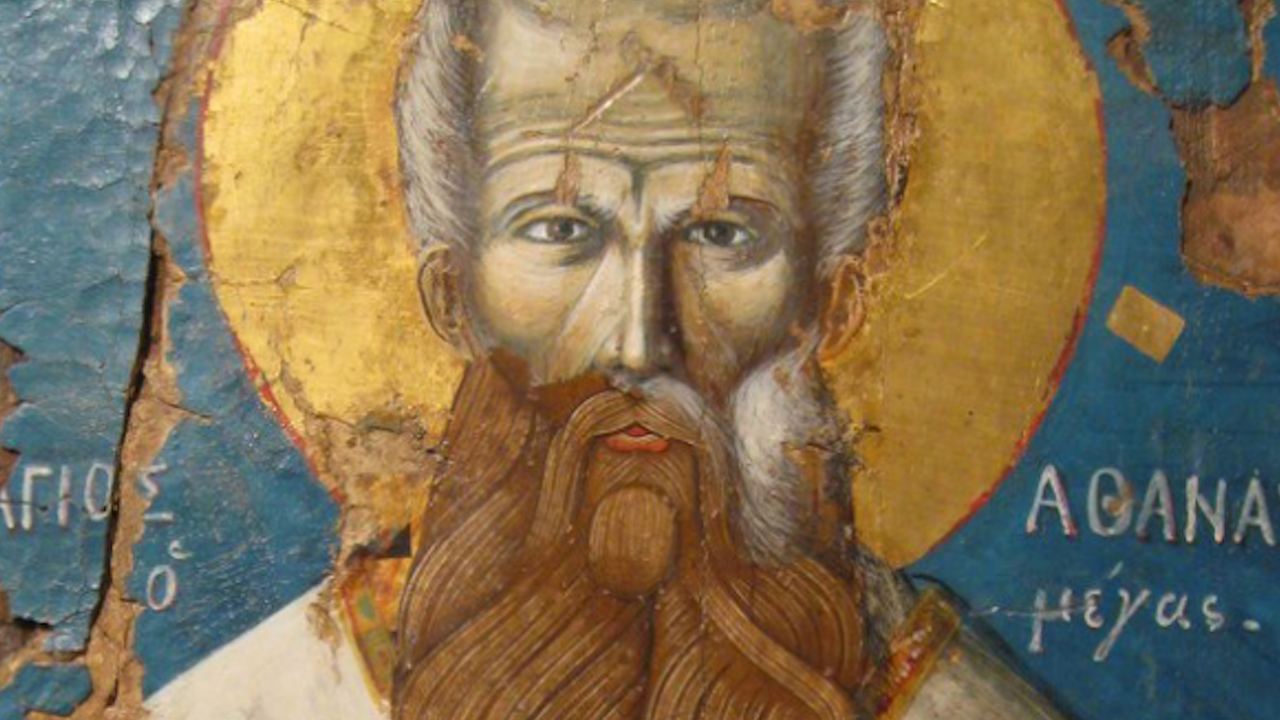"THE LAW
of death, which followed from the Transgression, prevailed upon us, and from it there was no escape. The thing that was happening was in truth both monstrous and unfitting. It would, of course, have been unthinkable that God should go back upon His word and that man, having transgressed, should not die; but it was equally monstrous that beings which once had shared the nature of the Word should perish and turn back again into non-existence through corruption. It was unworthy of the goodness of God that creatures made by Him should be brought to nothing through the deceit wrought upon man by the devil; and it was supremely unfitting that the work of God in mankind should disappear, either through their own negligence or through the deceit of evil spirits. As, then, the creatures whom He had created reasonable, like the Word, were in fact perishing, and such noble works were on the road to ruin, what then was God, being Good, to do? Was He to let corruption and death have their way with them? In that case, what was the use of having made them in the beginning? Surely it would have been better never to have been created at all than, having been created, to be neglected and perish; and, besides that, such indifference to the ruin of His own work before His very eyes would argue not goodness in God but limitations, and that far more than if He had never created men at all. It was impossible, therefore, that God should leave man to be carried off by corruption, because it would be unfitting and unworthy of Himself.
Yet, true though this is, it is not the whole matter. As we have already noted, it was unthinkable that God, the Father of Truth, should go back upon His word regarding death in order to ensure our continued existence. He could not falsify Himself; what, then, was God to do? …What—or rather Who was it that was needed for such grace and such recall as we required? Who, save the Word of God Himself, Who also in the beginning had made all things out of nothing? His part it was, and His alone, both to bring again the corruptible to incorruption and to maintain for the Father His consistency of character with all. For He alone, being Word of the Father and above all, was in consequence both able to recreate all, and worthy to suffer on behalf of all and to be an ambassador for all with the Father.
For this purpose, then, the incorporeal and incorruptible and immaterial Word of God entered our world.”
~St. Athanasius,
On the Incarnation
(St. Vladimir's Press, 1996), 32-33
Corruption is the movement towards non-existence, non-being, no-thing-ness.
But our Lord is the God who IS—I AM—in whom there is life and from whom everything that is has come to be (Jn. 1:3).
So, for something to corrupt, to reverse the course of being and become non-being, well, that’s just not how it is with God. And how much less so with those who were made in His image, after His likeness (Gen. 1:27). Corruption simply can’t be the end of man.
But this same God who IS—Yahweh—is also the truth (Jn. 14:6). And He cannot lie (Num. 23:19; Titus 1:2; Heb. 6:18). The Word He spoke to Adam—“for in the day that you eat of it you shall surely die” (Gen. 2:17)—must be fulfilled.
That’s the Divine dilemma. God must carry out His word and He must undo the corruption. But how?
St. Athanasius says it beautifully: “For this purpose, then, the incorporeal and incorruptible and immaterial Word of God entered our world.”
He didn’t enter our world as if He wasn’t already a part of it. But it was new. It was now in love—redeeming love. It was compassion that moved Him to take a body—our
body.
The only solution to this Divine dilemma was the offering of a body—His body—to the Father. His death means the end of death, the fulfillment of the Law, the reversal of corruption back to life. It also means that a sufficient exchange takes place. He takes what’s ours so that we might take what is His. Or, to say it a bit more Athanasius-ly, “He assumed humanity that we might become God” (93).
Of course, Athanasius doesn’t mean that the distinction between Creator and creation disappears. But He does mean that the image in which we were created is restored—by His taking our flesh and going to the cross, dying and rising for us.
“Naturally, therefore,” Athanasius says, “the Saviour assumed a body for Himself, in order that the body, being interwoven as it were with life, should no longer remain a mortal thing, in thrall to death, but as endued with immortality and risen from death, should thenceforth remain immortal” (81).
We Christians, through our Baptism into Christ, have been interwoven with life. As such, our corruption is reversing, our death is defeated, and our life is hidden with God in Christ. The Divine dilemma is solved. The Law is fulfilled, the Gospel upheld, and Christ lives for us.
Merry Christmas!
*Fr. Geoffrey R. Boyle
is Pastor of Grace and Trinity Lutheran Churches in Wichita, KS. He's the father of five and recently completed his PhD at the University of Toronto, studying Old Testament Biblical Theology.
**Originally delivered at the 11th annual Feast of the Nativity in the Year of Our Lord 2020 in Wichita, KS at The Ladder, headquarters for Eighth Day Institute.










